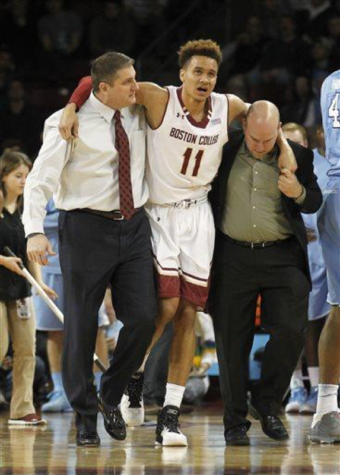Editorial: Economics of Why College Athletes Shouldn’t Be Paid
April 12, 2018
Not only should college athletes not be paid to attend college, but paying them would deter from the spirit of the game, educational opportunities, and academic experiences.
Playing a sport is not a job. Playing a sport should be a gift.
By paying athletes to play the sport they love, it takes the focus away from the academic institution funding the dream of the player.
Let’s talk numbers. A full athletic scholarship (a “grant-in-aid”) at an NCAA Division 1 university is about $65,000, if you enroll at a college with a high tuition. This scholarship is $45,000 for tuition and $20,000 for room, board, and books. Instate tuition is obviously cheaper, clocking in at about $13,000. However, for coaches, such as Mike Harbaugh of Michigan, who recruits players nationwide, if a student from Texas were asked to play for Michigan he would be paying the whole private college tuition lump sum.
That is the current model. What would the benefits be of giving a player a $100,000 salary instead of the $65,000 scholarship?
The $100,000 paycheck is nothing short of incredibly impressive for an 18 year old recruit who may be coming from poverty, but since it’s’ a salary and not a scholarship, it is subject to federal and state income taxes. Tuition and college expenses would not be deductible because the income surpasses the IRS eligibility limit. Therefore, a student-athlete paid the proposed salary would owe $23,800 in federal income tax and $6,700 in state taxes, a total of $30,500.
In cities that levy an employee payroll tax, the salaried student’s taxes go up about $2,400 per year. Income taxes then are $32,900. And, as an employee, the player would have to pay at least $2,000 in other taxes, such as Social Security, for a total of $34,900. This leaves the college player with $65,100. Since college bills come to $65,000, the player has $100 left.
The $100 leftover is hardly usable money.
The scholarship provided to the student would allow the tuition to be subsidized by the federal government but room and board would not to be. In short, $64,320, not out of the student’s salary, would be going directly towards the education of the student-athlete.
Why pay the excellent students for an “education” of one or two years? Shouldn’t college be about learning? The next step after college is working; why, as a society, would we make that step present in a college athlete’s life? To what end does that madness stop? If college athletes were to be paid, the madness would never end.
To help end the madness you can contact the NCAA and discuss the cold hard facts regarding payment and why they should keep it prohibited, and also sign petitions online to keep the game a game and not a job.



